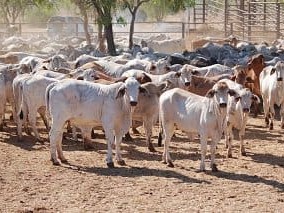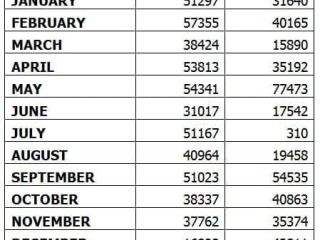 The resilience of Australia’s live export industry has been reflected in final export data for 2011, which shows that almost 200,000 cattle were shipped to Indonesia in the final five months of 2011.
The resilience of Australia’s live export industry has been reflected in final export data for 2011, which shows that almost 200,000 cattle were shipped to Indonesia in the final five months of 2011.
The figures highlight the achievements of exporters, importers and industry and departmental officials to bring Indonesian supply chains up to approved Australian animal welfare standards in rapid time.
When the Federal Government lifted its ban on exports to Indonesia in July, the size of the challenge to complete traceability, infrastructure and training upgrades before the market could be re-supplied seemed enormous.
Indeed in late July Meat and Livestock Australia chairman Don Heatley reflected widespread sentiment when he told ABC Radio that he did not expect Australian exports to exceed 50,000 head for the second half of the year, because of the delays likely to be involved in meeting new trade conditions.
MLA was slightly more bullish in its official mid-year projections released in early August but still forecast that less than 100,000 would be exported from August to December.
However, export data for 2011 from Agriculture minister Joe Ludwig’s office this week underlines the faster-than-expected turnaround achieved by the industry.
 After resuming in August, exports to the market had returned to year-earlier levels as early as September.
After resuming in August, exports to the market had returned to year-earlier levels as early as September.
Total exports from August to December were 192,731.
The total figures for 2011 according to departmental estimates released yesterday are 411,253.
When compared to the 520,000 head quota issued by Indonesia for the 2011 calendar year, the final figure indicates that the Federal Government’s two month shutdown ultimately cost Australia’s northern cattle industry about 110,000 cattle exports to its highest value market for the year.
Asked for his comments on the 2011 live export data yesterday, Minister Ludwig opted for a positive spin.
He described the strong finish in 2011 as proof that the industry “had successfully adopted the new regulatory framework without significantly impacting trade numbers.”
No doubt those directly affected by the mid-year ban and still struggling to make up for the lost income would challenge the notion that a 110,000 head shortfall did not amount to a significant impact.
Minister Ludwig praised industry and Government representatives for restoring trade so quickly and reiterated the Federal Government's commitment to the future of the trade under the new animal welfare assurance systems.
“The new regulatory framework seeks to ensure that each of those animals was treated at or above international animal welfare standards – that is a win for industry and will help cement the future of the trade,” he said.
“The speed at which the industry has recommenced the trade with Indonesia under the new framework is testament to the dedication of both the government and industry to working together to ensure the long term viability of this trade.
“The Australian Government worked closely with the livestock industry and state and territory governments to develop the new regulatory framework that enabled the resumption of trade to Indonesia in July.
“The Department of Agriculture, Fisheries and Forestry continue to work very closely with industry in the implementation of the new framework.”
Beef Central also sought the minister’s opinion on Indonesia’s recent announcement to cut annual import quotas from 520,000 head in 2011 to 280,000 head in 2012.
He said the cutbacks were in line with Indonesia's ongoing drive to achieve self-sufficiency, but said the Government would keep working closely with Indonesia to maintain a close relationship.
“Indonesia has repeatedly stated its intention to move towards self-sufficiency in agricultural production. This has been widely known amongst the industry for some time,” Mr Ludwig said.
“Decisions about import quotas are a matter for the Indonesian government.
“The Gillard Government will continue to work closely with industry and with Indonesia to maintain our close trading relationship.
“The live export trade supports rural jobs and regional communities. The Government is working to secure a long-term future for the trade to help protect those jobs and help sustain those communities.
“Live trade is a valuable and important industry for Australia and the government will continue to work to support it.”
